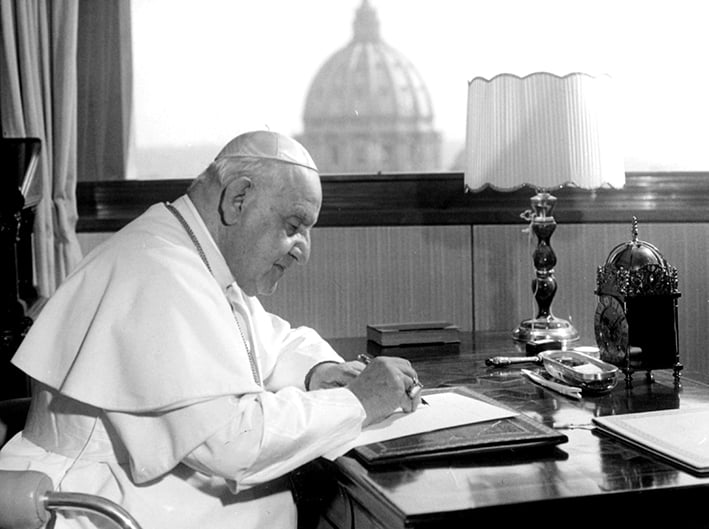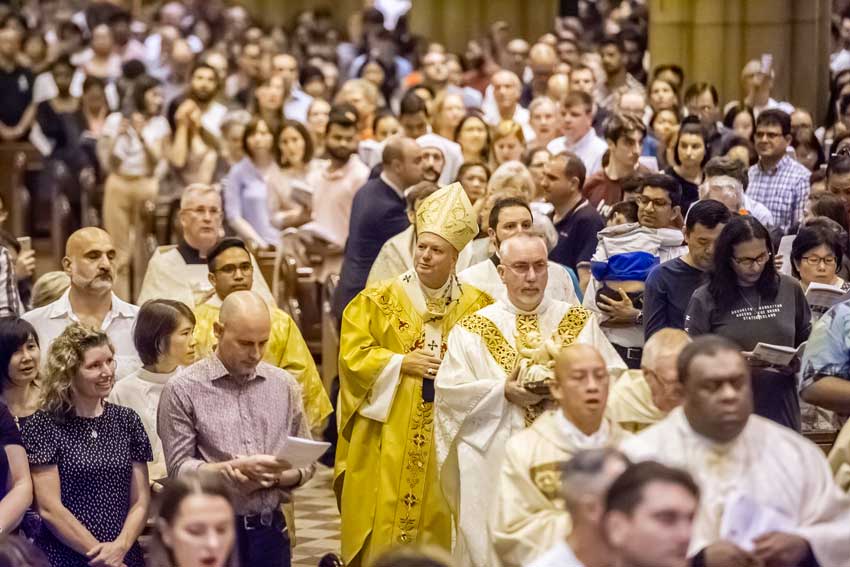
Good ideas – and a few ‘howlers’ in new Plenary documents
The six discernment papers for the Plenary Council have been published and they provide interesting insights into who we think we are and what we think God is and the Church is.
It is obvious that the papers include input from wildly different theological views. Drawing these together must have involved skillful management and patient guidance. To the Chairs – kudos!
There are good things in the proposals. The attention and space dedicated to the poor and those ‘on the margins’ is one of the more significant examples. The proposal for a marriage catechumenate to address the crisis in marriage is another.
Howlers?
There are also some howlers. The more exciting non-starters include discussion on women priests, the uncaring push for general Third Rite confession (which still requires First Rite anyway), and ‘collaborating’ with priests by removing them – from preaching, weddings, baptisms, funerals, and administering parishes.
What is troubling is that a main response common to all six papers to the problems of the Church’s disassociation from youth, lack of vocations, plummeting Mass numbers and lack of fruitfulness is – what? An ocean of bureaucracy. Committees and councils and consultations for every diocese and every single parish. In short a new permanent political (“laity are elected”) and bureaucratic hierarchy.
Given most people find bureaucracy as attractive as a wizard’s armpit, and that this bureaucratic approach was trialled extensively in the 70s and 80s and with a few exceptions wound up (or died) in the 90s – surely we can finally try something new.
Bureaucracy isn’t the answer
Its good to see public recognition of Vatican II’s universal call to all of us to conversion and mission. But that call is not to a single state of life. On the contrary, Vatican II quite clearly recognises that there are at least three different states of life – lay, consecrated and clerical – with very different roles and responsibilities. Part of the poverty of the bureaucratic option is the intolerance of difference and the scant attention paid to the new communities the Holy Spirit has already raised up – full of examples of how differing states of life can work together in ways that already work.

The real game: holiness
One thing is for sure: young people and young families, and most people really, are not going to come back to the Church because they have a seat at a committee meeting, or because the bureaucracy has pushed back the clergy. I mean, if that’s what the Church is – why would you join? As any priest can tell you – people’s profound preoccupations are: How can I cope with suffering? Where is an antidote to atheist pointlessness? Where can I find that joy my soul desires? Who will free me? What is my identity? What is the point of my life? How can I peacefully be by myself? Who will love me in a flawless and unending manner?

These are the questions all of us – lay, consecrated and clergy – have the task to answer in a life of missionary holiness. People join the Catholic Church because they see saints. It is the cultivation of saints – of a flood of devout families, prayerful missionary young people, joyful consecrated brothers and sisters, holy priests and courageous bishops – not bureaucracy, that will save the Church, and crucially, save the souls of all of those outside of her – who long for what we already have.
Related
No easy answers as Plenary papers released
Plenary 2020: the creeping clericalisation of the laity
